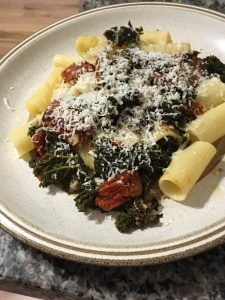Hello friends, colleagues, neighbors, and participants on previous Nature Walks:
On this snowy day, I invite you to mark your calendars and join me and a special guest on the third in a series of seasonal poetry walks through the Lone Tree Hill Conservation Area in Belmont on Sunday, February 21, 2:00-4:00. I am delighted to report that we will be joined by a special guest, the historical figure John Perkins Cushing. After decades as a sea merchant and opium trader in Canton, China, Mr. Cushing returned with a retinue of Chinese servants to Boston and what was then Watertown in 1827 as one of our nation’s first group of millionaires. He soon married the only daughter of the Reverend Gardiner of Trinity Church, Boston, and built Belmont, the country estate from which the town was named in 1859. A great philanthropist, horticulturist, and lover of the works of Nature, Mr. Cushing will help us enjoy poems which reflect on the reality and emotions of our coldest season, and to explore the forests, meadows, and trails in the gem of a landscape which surrounds the “Lone Tree Hill”. Our time traveller will no doubt be curious about what became of the new town after he died at age 75 in 1862.
We will meet at Belmont’s Highland Meadow cemetery, stroll along the famous Pine Allee, take in stunning views of the meadow and surrounding forest from Lone Tree Hill, explore the forest habitat surrounding the old Coal Road, and discover the mix of clues that nature and civilization have left for us to learn about the history of this land. We will stop along the way to read short poems from a variety of cultures, each with their own perspective on human and wildlife activities of Winter. People have been strolling here for centuries, healing and gaining inspiration from this beautiful home to wildlife such as red fox, coyote, cottontail rabbit, voles, chipmunks, and many residential birds such as wild turkey, red-tailed hawks, robins and woodpeckers.
Come explore the Winter season in our local landscape. Come reconnect with the land through poetry from New England and around the globe. Poets are keen observers of nature and human nature, of the uniquely exposed beauty and tracks visible in Winter, and of the importance of land and place. Find inspiration from those whose poems express love and concern for the natural landscape where they live. Let the poets help you appreciate this nearby gem, with its rich history as a part of the grounds of the McLean hospital of Belmont, and as conservation land which still looks much the same as the rest of Belmont appeared before the arrival of today’s suburban development.
What: Listen to poetry as we stop along a one-mile nature trail in Belmont
When: 2:00-4:00 p.m. Sunday, February 21, 2016
Where: Highland Meadow Cemetery, 700 Concord Avenue, Belmont (across from Somerset St.); park cars along one side of the driveway loop (stay on the pavement)
Who: Anne-Marie Lambert is a Belmont Citizens Forum board member who has been leading nature walks along Little River and writing Newsletter articles about Belmont history and storm water. This is her third guided walk to explore the four seasons with poetry at Lone Tree Hill.
Bring/Wear: boots and warm clothing appropriate to the weather, water to drink, and, optionally, a walking stick for uneven terrain. Snow shoes welcome if there’s enough snow cover.
Weather: Only a blizzard or severe storms will cancel.
Trail Map: Lone Tree Hill Map
History: McLean Hospital History, McLean Land History and Future. A Belmont Historical Society lecture this past October by Ipswich writer Doug Stewart, “Massachusetts’ Role in the 19th Century China Trade,” explains this fascinating period during which Mr. Cushing made — and spent — his millions.
Anne-Marie
This walk is sponsored by:
Belmont Citizens Forum

